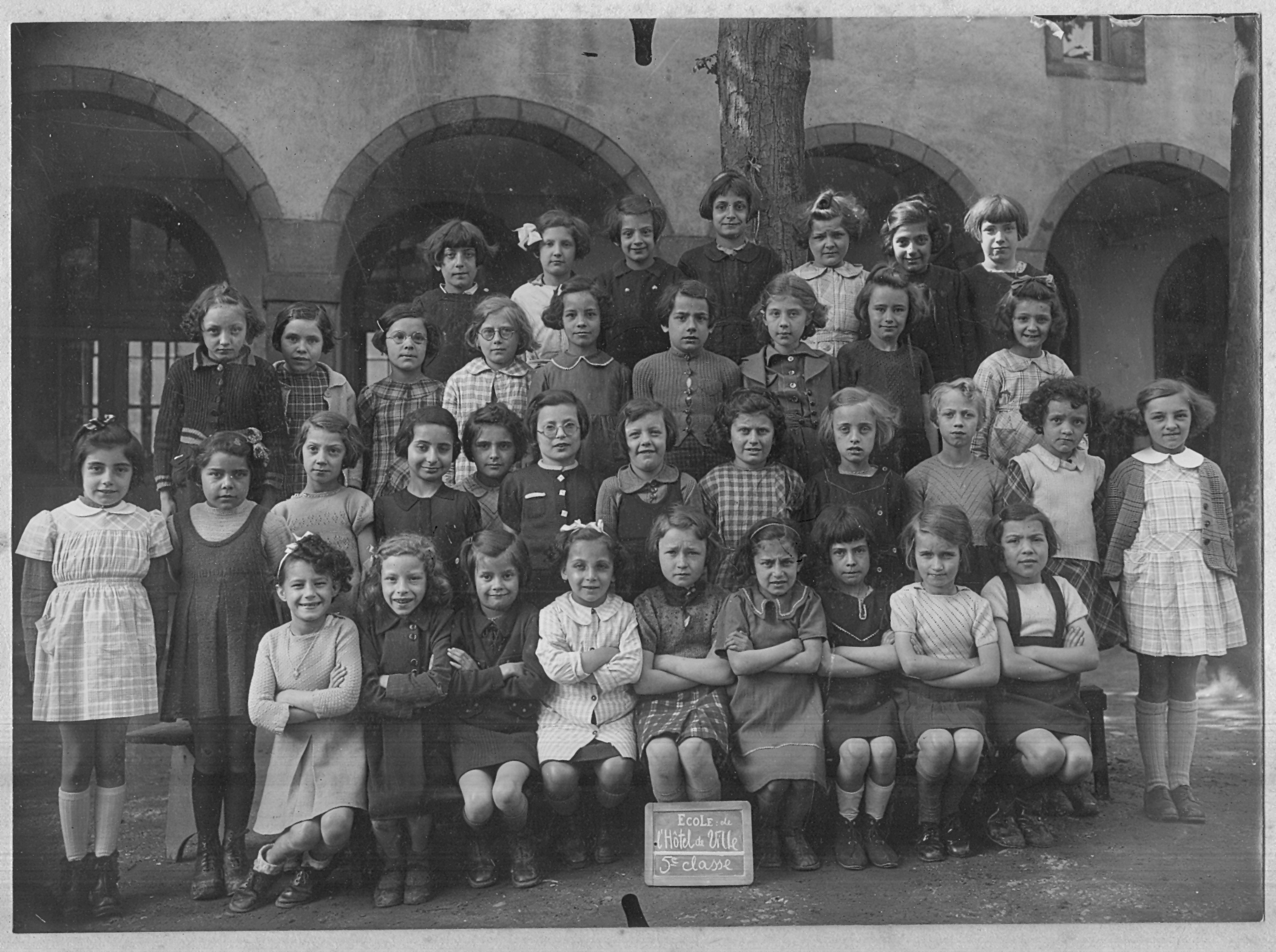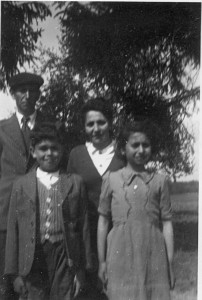Read the first part of Solange’s story here at “Memories of the War: Sabine Solange Mantel née Hoch”
One Saturday in June 1940, I was at the market with my parents in an alley just off the Champs-de-Mars. We had moved our stall under the cover of the trees to protect ourselves from the German planes which had already begun to circle overhead. The day before, at Friday prayers, Rabbi Ernest Weill from the pulpit had urged his fellow Jews not to observe the Shabbat but, instead, to leave Alsace as soon as they could. My parents kept all of their stock in a bedroom in our apartment. Before we left, they packed all of their merchandise into jute bags and sewed them up. They hoped to come and collect them once they had settled themselves in an area further from the border. We left with a market cart. We took a the train but since there were no more passenger trains, we had to stand in a freight car. I carried my doll in my arms; it was the most import thing in the world to me. While we were travelling, our train was machine gunned by German planes. My father was struck by a stray fragment and bled profusely. The whole incident left me deeply traumatised. The train stopped and we reached Montbéliard in a lorry. We stayed several days in the Bumsel family home. They had already fled, presumably out of the country. Here, we met two other families who had come from Colmar: the Rowinskys and the Schönbergs. We came across the first of the German soldiers. They were drinking beer and laughing. My parents were crying. Our next stop was Moulin where we went with the other families and where we were fed by the Robert Lévy family. In the panic, one family left their baby in its basket on a bench. Fortunately, my mother got back off the train and brought it back. The station of Gannat (Allier) was swarming with German soldiers. We ended up in Limoges. When the school year started again, I began my education. The Marshal Pétain came to Limoges and we waved small flags as he went by.

Limoges 1941: School class, Solange is in the second row from the front, fourth from the left. “The day after this photo we all had to wave flags and sing “Maréchal nous voilà”
First we lived in an old butcher’s shop. We lived there with three other families from Colmar: the Buchingers, the Weinbergs and the Hillers. The three wives were all sisters née Goldberg. The children slept on one floor, the women on another and the men took the top floor. Later, my mother found us an apartment on the Place du Poids Public. I don’t know how my parents managed financially. Lots of Jewish families took refuge in Limoges and Jewish life was presided over by the Rabbi Abraham Deutsch. We did religious studies. We had to leave Limoges after the expulsion order for stateless individuals came into force.
Continue reading Solange’s story here at “Compreignac: from 1941 to 1944-Sabine Solange Mantel”
Comment on the story here.

